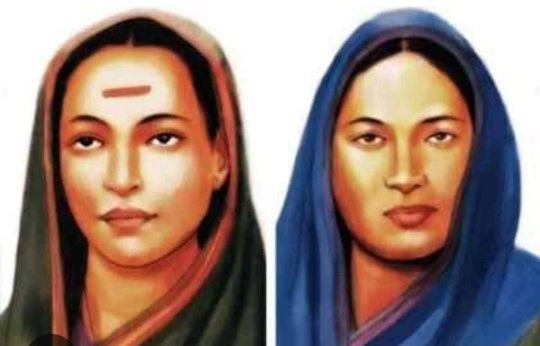Throughout history, powerful individuals and groups have often erased events or personalities for political and ideological gains. One of the most striking examples is the story of Emperor Ashoka, whose name remained unknown in his homeland for nearly 2,000 years until British administrator James Prinsep deciphered the inscriptions on Ashokan pillars in 1837. This discovery marked the beginning of Ashoka’s recognition and inclusion in Indian history books.
The deliberate erasure of Ashoka’s legacy likely served the Brahminical order, which sought to consolidate its monopoly over knowledge and maintain social hierarchies. Ashoka, a Buddhist emperor, actively promoted Buddhism, built significant Buddhist sites, and encouraged pilgrimages, making his erasure essential for the revival of Brahminical dominance.
In modern times, we are witnessing a similar attempt to distort and erase history, particularly under the Hindutva agenda led by the RSS, which aims to demonize Muslim rulers and diminish their contributions. Not just rulers, even social reformers are under threat of being wiped from collective memory. A recent controversy involves a prominent journalist and Bahujan advocate, Dilip Mandal, who once stood for caste reform and secularism. After being appointed as an advisor to the Ministry of Information and Broadcasting, Mandal’s rhetoric shifted sharply, targeting Muslims and holding them accountable for the failures of the Bahujan social justice movement. He even accused Mughal rulers of upholding the caste system while exonerating British colonialists, revealing a bias aligned with Hindutva ideologies.
Mandal’s most audacious act, however, was his denial of the existence of Fatima Sheikh, a Muslim social reformer and close associate of Savitribai Phule. He claimed that Fatima was a fictional character created to promote secular values. Later, when confronted with evidence, he revised his stance, suggesting she may have existed but only as Savitribai’s servant.
The Story of Savitribai and Fatima Sheikh
Savitribai Phule, a pioneer of women’s education and social reform, has become a celebrated figure in India. Her name, however, was almost forgotten until the women’s movement of the 1970s rediscovered her extraordinary contributions. Born in 1831, Savitribai married Jyotirao Phule at the age of nine. Encouraged by Jyotirao, who recognized the transformative power of education, she pursued her studies and eventually trained as a teacher.
In 1848, Savitribai and Jyotirao established their first school for girls from backward and Dalit communities. Their efforts faced severe backlash from Pune’s Brahminical community, forcing them to leave Jyotirao’s ancestral home. The couple found refuge with Usman Sheikh, whose sister, Fatima Sheikh, became Savitribai’s closest ally. Fatima was not only an educator but also a courageous reformer who, along with Savitribai, endured relentless abuse and hostility while running schools for marginalized girls.
Over the years, Savitribai and Fatima opened 18 schools in Pune. While Savitribai took on broader social causes, Fatima focused on managing the schools. Together, they worked to uplift widows and unwed mothers who faced societal ostracism. In 1853, they established a shelter home, “Bal Hatya Pratibandhak Griha,” for abandoned women and their children, a revolutionary initiative for its time.
Savitribai’s writings and poetry are well-documented, but little is known about Fatima Sheikh’s literary contributions. Savitribai mentioned in her writings that Fatima was a talented poet proficient in Urdu, but her works were never published. Despite this, Fatima’s role in championing education and social reform remains undeniable.
A Friendship That Transcended Boundaries
The friendship between Savitribai and Fatima transcended religious and societal boundaries, serving as a testament to unity in the fight for social justice. Savitribai often credited Fatima as her most trusted collaborator, stating that their shared efforts were instrumental in educating girls and challenging oppressive systems.
Despite their monumental contributions, Fatima Sheikh’s legacy has remained overshadowed, resurfacing only through persistent research into Savitribai’s life. This erasure underscores the need to preserve and celebrate the stories of reformers like Fatima, who dared to challenge entrenched inequalities.
The Ongoing Struggle for Unity
The recent efforts to diminish Fatima Sheikh’s legacy are part of a larger agenda to divide marginalized communities and weaken the fight for social justice. However, the unity and courage that defined Savitribai and Fatima’s journey continue to inspire millions. Their story reminds us of the strength that lies in solidarity and the enduring power of education and reform.
Today, as Hindutva forces attempt to distort history and sow discord, it is imperative to uphold the values that Savitribai and Fatima stood for. Their legacy is a beacon of hope, urging us to stand united in the pursuit of equality and justice.







Recent Comments